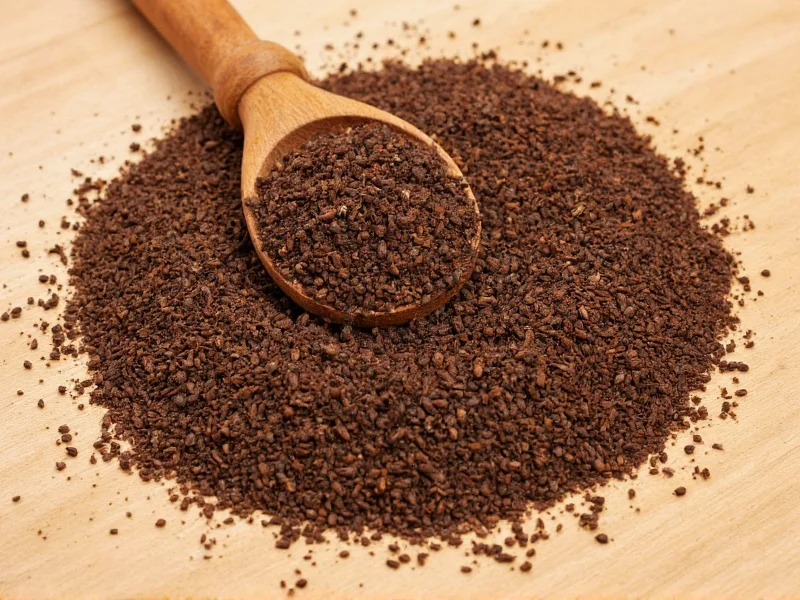Understanding the proper conversion between whole and ground cloves is crucial for achieving balanced flavors in your culinary creations. The difference in potency stems from how grinding affects the spice's essential oils and surface area. Whole cloves maintain their aromatic compounds longer, while ground cloves release their flavor more readily but lose potency faster due to oxidation.
The Science Behind Clove Conversion
When cloves are ground, their cellular structure breaks down, releasing volatile oils that contain the characteristic flavor and aroma. This process increases the surface area by approximately 300%, making ground cloves significantly more potent by volume than their whole counterparts. The conversion ratio accounts for this increased potency while considering typical measurement practices in home cooking.
It's important to note that the exact conversion can vary slightly based on clove size and age. Larger Indonesian cloves may yield slightly more ground spice than smaller Madagascar varieties. Similarly, older ground cloves that have lost some potency might require slightly more than the standard ratio to achieve equivalent flavor.
Whole Cloves to Ground Cloves Conversion Table
| Whole Cloves | Ground Cloves | Common Recipe Measurement |
|---|---|---|
| 3 cloves | 1/4 teaspoon | Small spice addition |
| 6 cloves | 1/2 teaspoon | Moderate spice addition |
| 9 cloves | 3/4 teaspoon | Substantial spice addition |
| 12 cloves | 1 teaspoon | Standard measurement unit |
| 36 cloves | 1 tablespoon | Larger recipe requirement |
Practical Application in Recipes
When substituting between whole and ground cloves, consider the cooking method and duration. Whole cloves work best in long-simmering dishes like stews, mulled wine, or rice pilafs where they can slowly release flavor. Remove them before serving to prevent biting into the intense spice. Ground cloves integrate more quickly and evenly, making them ideal for baked goods, spice blends, and quick-cooking sauces.
For the most accurate whole cloves to ground cloves equivalent measurement, freshly grind your own cloves using a dedicated spice grinder or mortar and pestle. Pre-ground cloves often lose 30-40% of their volatile oils during commercial processing and storage, making them less potent than freshly ground versions from whole cloves.
Tips for Optimal Clove Usage
- Storage matters: Keep whole cloves in an airtight container away from light and heat. They maintain potency for 1-2 years, while ground cloves degrade noticeably after 6 months
- Fresh grinding advantage: For recipes calling for ground cloves, grinding your own from whole cloves provides noticeably brighter flavor and more accurate cloves measurement conversion
- Taste as you go: When substituting, add about 75% of the converted amount first, then adjust to taste, especially with older spices
- Recipe context: In dishes with long cooking times, you may need slightly less ground cloves than the standard ratio suggests, as their flavor distributes more thoroughly
Common Conversion Mistakes to Avoid
Many home cooks make errors when converting between whole and ground cloves. The most frequent mistake is using a 1:1 ratio, which results in significantly under-seasoned dishes. Another common error is not accounting for the age of ground cloves—older ground spices may require up to 50% more than the standard conversion to achieve equivalent flavor intensity.
When following recipes that specify how many whole cloves equal 1 teaspoon ground cloves, remember that professional recipes often assume freshly ground spices. Home cooks using older ground cloves might need to adjust upward while those grinding fresh might use slightly less than the standard ratio for the same flavor impact.
Measuring Techniques for Precision
For the most accurate whole cloves to ground cloves conversion ratio, use proper measuring techniques. When counting whole cloves, use uniform medium-sized cloves for consistency. For ground cloves, spoon the spice into your measuring spoon and level off without packing—unlike flour, spices should not be compacted.
If you're working with a recipe that calls for an unusual amount, such as how many ground cloves equal 5 whole cloves, calculate proportionally: 5 whole cloves would equal approximately 5/12 teaspoon, or slightly less than 1/2 teaspoon (which equals 6 cloves). In practice, most home cooks would use 7/16 teaspoon or estimate between 3/8 and 1/2 teaspoon.
Frequently Asked Questions
How many whole cloves equal 1 teaspoon of ground cloves?
Approximately 12 whole cloves equal 1 teaspoon of ground cloves. This conversion accounts for the increased surface area and potency of ground cloves compared to whole cloves. For smaller measurements, 3 whole cloves equal about 1/4 teaspoon of ground cloves.
Can I substitute ground cloves for whole cloves in recipes?
Yes, you can substitute ground cloves for whole cloves using the 12:1 ratio (12 whole cloves = 1 teaspoon ground cloves). However, consider the cooking method—whole cloves work better in long-simmering dishes where they can be removed before serving, while ground cloves integrate more quickly and evenly in baked goods and quick-cooking sauces.
Why isn't the conversion between whole and ground cloves a 1:1 ratio?
The conversion isn't 1:1 because grinding cloves increases their surface area by approximately 300%, releasing more essential oils and making the flavor more concentrated. Whole cloves maintain their potency longer but release flavor more slowly, while ground cloves provide immediate but less enduring flavor impact.
Does the age of cloves affect the conversion ratio?
Yes, the age significantly affects potency. Whole cloves maintain their flavor for 1-2 years when properly stored, while ground cloves lose 30-40% of their volatile oils within 6 months. Older ground cloves may require up to 50% more than the standard conversion to achieve equivalent flavor intensity compared to fresh whole cloves.











 浙公网安备
33010002000092号
浙公网安备
33010002000092号 浙B2-20120091-4
浙B2-20120091-4